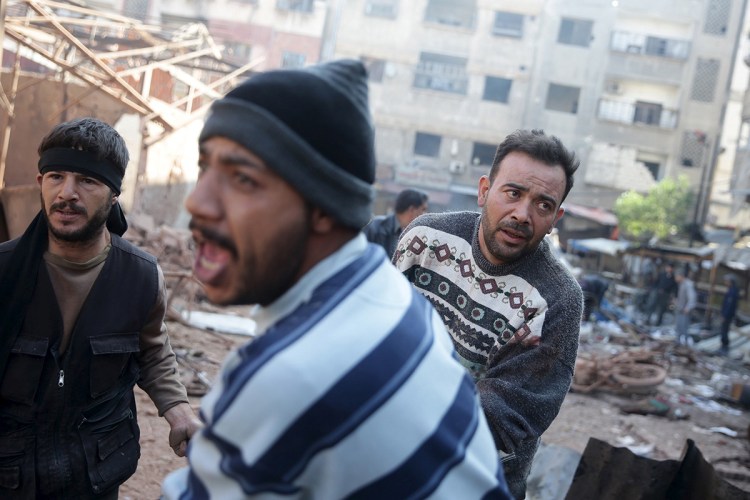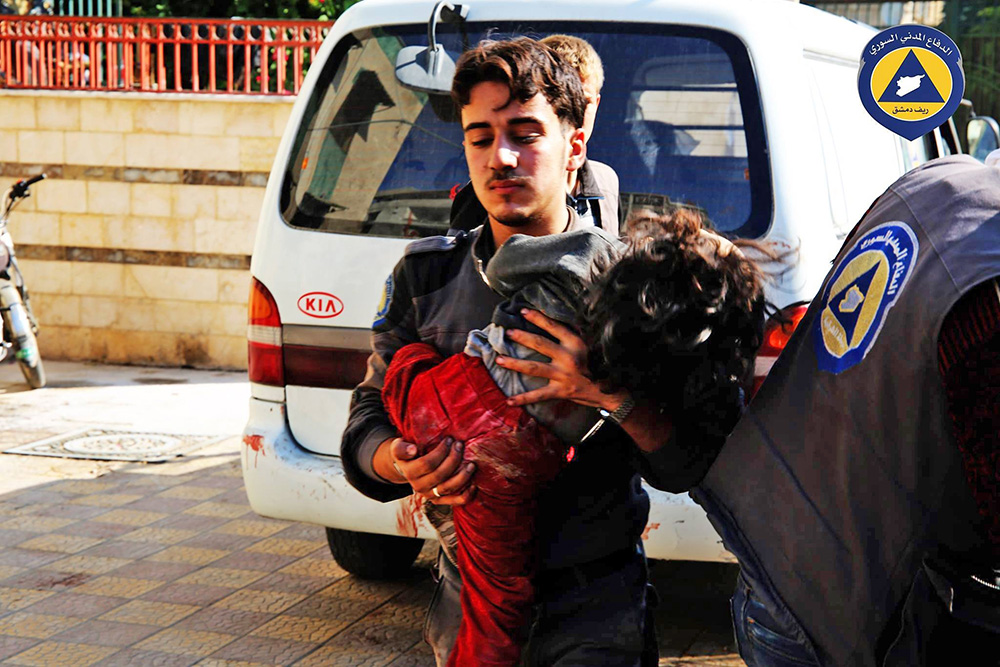WASHINGTON — The United States escalated its fight against the Islamic State in Syria on Friday, pledging the first open deployment of military boots on the ground, even as U.S., Russian and other diplomats pressed a new peace effort that America hopes will hasten the departure of Bashar Assad.
Up to 50 special operations troops will be sent to assist Kurdish and Arab forces in northern Syria, American officials said. The move marks a significant departure for President Obama, who for years has resisted putting ground forces in Syria even as he has gradually intensified the U.S. military response to what counterterrorism officials worry is a growing Islamic State threat in Syria and Iraq.
The troop announcement came as diplomats in Vienna representing 17 countries and the European Union agreed to launch a broad new peace attempt to gradually end Syria’s long civil war – a declaration that avoided any determination on when President Assad might leave.
It is not clear how many rebel groups would agree to a plan that doesn’t result in Assad’s immediate departure.
Any cease-fire agreement that may come as a result of the peace effort would not include the Islamic State, which controls large parts of northern Syria and has its capital there.
But the participation by Russia and Iran in the attempt could mark a new and promising phase in the diplomacy since those countries have staunchly backed Assad.
The White House has long said that Assad’s ouster is essential to its ultimate goal of defeating the Islamic State because the Syrian president’s brutal tactics against Sunni rebels have drawn Sunni radicals from all over the world into the militant group’s ranks.
The Syrian civil war has killed more than 250,000 people and uprooted more than 11 million, sparking a refugee crisis throughout Europe.
Despite killing as many as 12,000 militants, the U.S. bombing campaign has not significantly weakened the Islamic State’s capacity to hold territory, and the group’s ranks have been replenished by foreign fighters and others.
Military experts say ground troops are essential for the fight. A U.S. program to train Syrians was abandoned as a failure, and the new deployment essentially would replace that program.
Speaking to reporters flying with him on an overseas trip, Defense Secretary Ash Carter said this would probably not be the last significant adjustment to the anti-Islamic State military campaign in Syria and Iraq.
“We are going to continue to innovate, to build up what works,” he said.
Friday’s developments came as missiles slammed into a crowded suburb of the Syrian capital.
The attack killed at least 40 people, activists said. The Syrian Observatory for Human Rights and the Local Coordination Committees group said government forces fired more than 11 missiles at a market in the suburb of Douma.
In Washington, officials said the new U.S. forces will work from headquarters locations and won’t move to the front lines or be used to call in airstrikes. However, the U.S. has conducted special operations raids into Syria before now and will continue to do more unilateral raids. It helped Iraqi forces rescue hostages last week, and Master Sgt. Joshua Wheeler was killed, the first U.S. combat death in that country since 2011.
White House spokesman Josh Earnest said the new troops will not be on a “combat mission.”
“There’s no denying the serious risk they will be facing,” Earnest said, but their mission will “not be to lead the charge to take the hill.”
Russia and Syria are conducting airstrikes in the country, but Earnest said it was unlikely the U.S. troops would be at risk because Russia has not bombed in the area where they will be.
On Capitol Hill, some lawmakers greeted the troop announcement with dismay.
It “marks a major shift in U.S. policy – a shift that is occurring without congressional debate (and) is unlikely to succeed in achieving our objective of defeating IS,” said Sen. Brian Schatz, D-Hawaii.
On the other hand, Sen. John McCain, R-Ariz., chairman of the Armed Services Committee, said the decision was “another insufficient step in the Obama administration’s policy of gradual escalation.”
Copy the Story LinkSend questions/comments to the editors.





Success. Please wait for the page to reload. If the page does not reload within 5 seconds, please refresh the page.
Enter your email and password to access comments.
Hi, to comment on stories you must . This profile is in addition to your subscription and website login.
Already have a commenting profile? .
Invalid username/password.
Please check your email to confirm and complete your registration.
Only subscribers are eligible to post comments. Please subscribe or login first for digital access. Here’s why.
Use the form below to reset your password. When you've submitted your account email, we will send an email with a reset code.